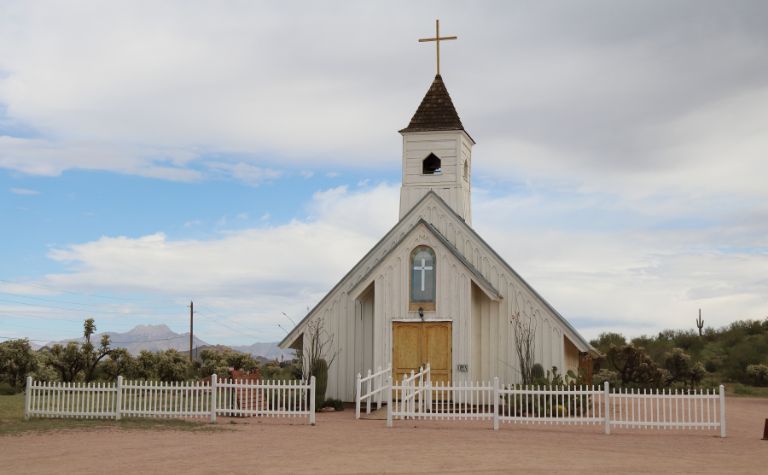People who identify as Christians have different views on the Church, society, and government. Some believe it’s important to maintain traditional values and fight to ensure their survival. Others believe it’s important to challenge conventional standards and fight to advance new ideas. An ideology that is growing in the 21st-century Church, especially in mainline denominations, is Progressive Christianity.
Progressive Christianity refers to principles and movements within the Church that align with social liberalism. Some adherents identify as “liberal-progressive,” in contrast to conservative. Others distinguish between “progressive” and “liberal,” where the former is further left ideologically than the latter.
Does liberal Christianity use the word “progressive” the same way that people use it in the context of socio-political ideologies? What’s the difference between Progressive Christianity as social liberalism and as ecclesiastical liberalism? What are examples of each? What Bible verses do Christian progressives emphasize? Keep reading to learn the answers to these questions and more.
Also see What Does It Mean To Be A Christian? to learn more.

The many faces of Progressive Christianity
People use the word “progressive” differently in 21st-century political discussions. When some people use the word, they do so as a synonym for the Democratic Party or liberalism. When other people use the word, they do so as a way to distinguish ideologies within the Democratic Party or liberalism.
Regarding the latter, the “progressive” label often identifies a person or idea that is further left ideologically than mainstream Democratic principles and policies. [1] Critics, whether social or political conservatives or moderate Democrats, sometimes view progressives as extreme. Supporters sometimes view them as reformers or even revolutionaries.
Progressive ideologies within churches
The traditional, conservative, and orthodox ideas that Christian progressives challenge varies. Progressive Christianity has many expressions, just as progressivism as a social and political ideology in the 21st century does. The term “Progressive Christianity” often refers to one of two broad approaches, each with different objectives. One champions social liberalism; the other champions ecclesiastical liberalism.
Progressive Christianity as social liberalism: In general, this approach describes progressives attempting to enact change in society using churches or denominations as a base. In this case, the church congregation provides activists with a community of spiritual, emotional, and financial support as they attempt to advance certain causes in society. In summary, people attempt change outside the church.
Christian history is full of examples of churches changing society, yet in this context, it refers to reforming it in alignment with 21st-century social liberalism. Examples include:
- Women’s rights
- LGBTQ+ rights
- Prison reform
- Immigration issues
- Access to abortion
- local political issues
Progressive Christianity as ecclesiastical liberalism: In general, this refers to progressives attempting to enact change within churches or denominations. In this case, the church’s traditional principles and policies are seen as oppressive and must undergo reform.
Such movements sometimes result in congregational or denominational fractures that result in one group splitting from another. In summary, people attempt changes inside the church.
For example, some progressives argue that certain Christian doctrines and their applications are outdated, oppressive, and even bigoted. In the second half of the 20th century, some progressive Christians challenged the traditional norms of a woman’s role in churches, families, and society. And at the beginning of the 21st century, some challenged the traditional view of marriage.
Also see What Is a Lukewarm Christian? to learn more.

An example of a denomination split
In 2020, a group within the United Methodist Conference voted to separate from the denomination and form the Global Methodist Church over LGBTQ+ issues. Yet a 2019 vote affirmed the traditional view of the denomination. Mark Tooley of The Gospel Coalition explains:
“Unlike most mainline denominations, United Methodism has never officially liberalized its teachings on sexuality and instead strengthened them at its last governing General Conference in 2019 by a 53 percent majority.”
“This was possible only because its membership is international, with nearly half in Africa at that time, where beliefs are very conservative. As the American church shrinks and the African church grows, the conservative majority will only expand.”
“Liberals control every position of power within the U.S. part of the church, and U.S. bishops increasingly refuse to uphold church law defining marriage as only between a man and a woman. Twelve of United Methodism’s 13 official seminaries are theologically and ethically liberal. All general church agencies are liberal.” [2]
Also see How Did Christianity Spread? to learn more.

Do conservative Christians ever support social progress?
Though conservative Christians are on the opposite side of the ideological spectrum than liberal progressives, it’s incorrect to stereotype them as opposed to all forms of social advancement. For example, while it’s true that some traditional, conservative Christians were opposed to the abolition of slavery and the Civil Rights Movement, it’s also true that many supported it and worked for the cause.
Do progressive Christians ever support tradition?
It’s incorrect to stereotype progressive Christians as against all traditional principles and values. The fact that they are involved in a historically Christian church or denomination testifies to this fact. The Christian church is the oldest institution in the Western world. However, conservatives would counter this, contending that changing the church so much may result in not having a church at all.
What Bible verses do Christian progressives emphasize?
The Bible verses that Progressive Christianity values are those that teach about caring for the poor, weak, and marginalized in society. The Old Testament prophets are essential to progressives because they called to account the wealthy and powerful for their mistreatment of the less fortunate.
| Leviticus 19:15 | You shall do no injustice in court. You shall not be partial to the poor or defer to the great, but in righteousness shall you judge your neighbor. |
| Exodus 23:1-3 | You shall not spread a false report. You shall not join hands with a wicked man to be a malicious witness. You shall not fall in with the many to do evil, nor shall you bear witness in a lawsuit, siding with the many, so as to pervert justice, nor shall you be partial to a poor man in his lawsuit. |
| Deuteronomy 1:16-17 | And I charged your judges at that time, ‘Hear the cases between your brothers, and judge righteously between a man and his brother or the alien who is with him. You shall not be partial in judgment. You shall hear the small and the great alike. You shall not be intimidated by anyone, for the judgment is God’s. And the case that is too hard for you, you shall bring to me, and I will hear it.’ |
| Malachi 2:17 | You have wearied the Lord with your words. But you say, “How have we wearied him?” By saying, “Everyone who does evil is good in the sight of the Lord, and he delights in them.” Or by asking, “Where is the God of justice?” |
| Habakkuk 1:4 | So the law is paralyzed, and justice never goes forth. For the wicked surround the righteous; so justice goes forth perverted. |
Also see What Does the Name Christian Mean? to learn more.
References:
[1] Source
[2] Source
Related Questions
Some Christians have a reputation for being unkind, judgemental, and condemnatory. In their efforts to express and defend their faith, they come across as mean, contrary to Jesus Christ's example....
Christian Apologists have been around for 2,000 years. Some of the first followers of Jesus Christ became apologists. What's more, is that there are still Christian apologists today. People can find...
